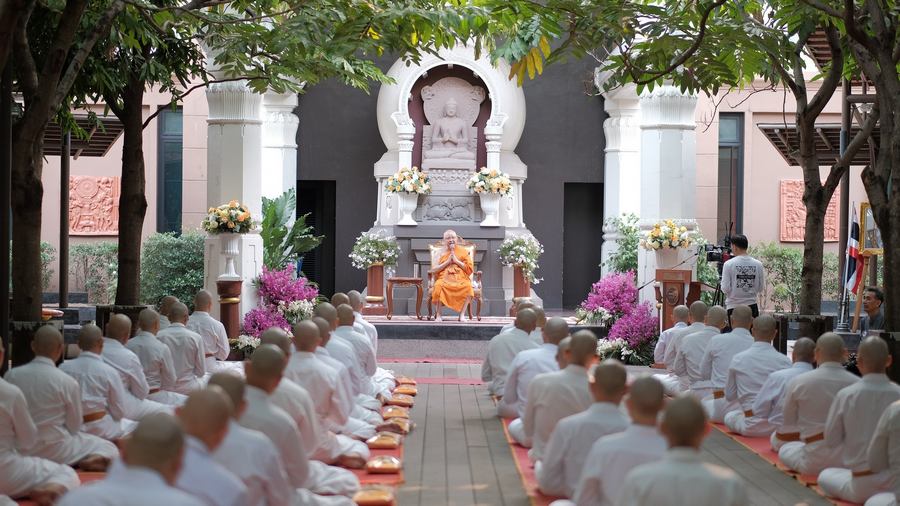I have heard that on one occasion the Blessed One was staying among the Sakyans near Kapilavatthu in the Banyan Park. Then Mahānāma the Sakyan went to the Blessed One and, on arrival, having bowed down to him, sat to one side. As he was sitting there, he said to the Blessed One, “Lord, this Kapilavatthu is rich & prosperous, populous & crowded, its alleys congested. Sometimes, when I enter Kapilavatthu in the evening after visiting with the Blessed One or with the monks who inspire the mind, I meet up with a runaway elephant, a runaway horse, a runaway chariot, a runaway cart, or a runaway person. At times like that my mindfulness with regard to the Blessed One gets muddled, my mindfulness with regard to the Dhamma… the Saṅgha gets muddled. The thought occurs to me, ‘If I were to die at this moment, what would be my destination? What would be my future course?”
“Have no fear, Mahānāma! Have no fear! Your death will not be a bad one, your demise will not be bad. A disciple of the noble ones, when endowed with four qualities, leans toward unbinding, slants toward unbinding, inclines toward unbinding. Which four?
“There is the case where the disciple of the noble ones is endowed with verified confidence in the Awakened One: ‘Indeed, the Blessed One is worthy & rightly self-awakened, consummate in clear-knowing & conduct, well-gone, an expert with regard to the cosmos, unexcelled trainer of people fit to be tamed, teacher of devas & human beings, awakened, blessed.’
“He/she is endowed with verified confidence in the Dhamma: ‘The Dhamma is well taught by the Blessed One, to be seen here & now, timeless, inviting verification, pertinent, to be experienced by the observant for themselves.’
“He/she is endowed with verified confidence in the Saṅgha: ‘The Saṅgha of the Blessed One’s disciples who have practiced well… who have practiced straight-forwardly… who have practiced methodically… who have practiced masterfully—in other words, the four types of noble disciples when taken as pairs, the eight when taken as individual types—they are the Saṅgha of the Blessed One’s disciples: deserving of gifts, deserving of hospitality, deserving of offerings, deserving of respect, the incomparable field of merit for the world.’
“He/she is endowed with virtues that are appealing to the noble ones: untorn, unbroken, unspotted, unsplattered, liberating, praised by the observant, ungrasped at, leading to concentration.
“Suppose a tree were leaning toward the east, slanting toward the east, inclining toward the east. When its root is cut, which way would it fall?”
“In whichever way it was leaning, slanting, and inclining, lord.”
“In the same way, Mahānāma, a disciple of the noble ones, when endowed with four qualities, leans toward unbinding, slants toward unbinding, inclines toward unbinding.”
Read this translation of Saṁyutta Nikāya 55.22 Mahānāma Sutta. To Mahānāma (2) by Bhikkhu Ṭhanissaro on DhammaTalks.org. Or read a different translation on SuttaCentral.net, or SuttaFriends.org. Or listen on SC-Voice.net. Or explore the Pali on DigitalPaliReader.online.


